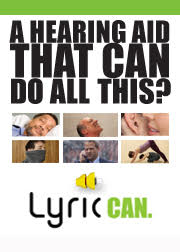Putting your baby to sleep next to a white noise machine may increase the child’s risk of hearing loss, a new study suggests.
The Canadian study, published in the journal Pediatrics, measured the decibel levels of a variety of infant sleep machines and found that some of them were so loud that they exceeded industry safety levels.
Dr. Blake Papsin, a pediatric otolaryngologist at Toronto’s Hospital for Sick Children and one of the authors of the study, told CTV’s Canada AM Monday that all the machines tested surpassed what researchers considered a normal level of noise in a neonatal nursery. The recommended limit is 50 decibels.
A new study suggests that a white noise machine aimed at helping babies sleep could affect their hearing down the road.
Researchers tested 14 different models of baby sleep machines at maximum volume and at three different distances to see what the noise levels are when the device is attached to a baby’s crib, placed near the crib, or across the room.
“All of them surpassed what we considered a safe level for a child,” Papsin said.
White noise machines have become a popular way to get babies to sleep, but Papsin said he hopes the latest study will prompt parents to reconsider how they’re using the devices.
“The conversation that we wanted to start with is that noise, like Aspirin, is a dose. It’s safe in some doses, but as you increase the dose, it might become less safe,” he said.
An infant’s ear canal is different than an adult’s, Papsin said, and it’s more susceptible to certain noise frequencies.
As a result, many parents are probably underestimating the level of sound that they’re delivering to their babies, he said.
Papsin said that sound at 85 decibels delivered for eight hours is considered safe for an adult. But with each increase of three decibels, the amount of time that can be safely spent in a noisy environment decreases, increasing the risk of hearing loss.
“Remember, they are being turned on to mask another noise,” Papsin told CTV News. “Think how damaging the potential side effects could be.”
The researchers note that they have not proven that the devices cause hearing loss, but rather fear it may be happening.
Papsin said he got the idea for the study after visiting a young patient’s room and noticing a loud sleep machine next to the baby. After talking with the child’s parents, he decided to immediately measure the decibel levels produced by the device and concluded that it was “about as loud as a car wash.”
“Really have we come to this?” Papsin told Canada AM. “We need an app to put our children to sleep?”
He said there are easy solutions for decreasing the use of white noise machines or eliminating them from the nursery altogether: double-glazing windows in the room, putting carpet on the floor, and keeping TVs and other electronics in the house far away from the baby.
If you still want to use a baby sleep machine, keep it as far away from the crib as possible and set it to a low level, Papsin suggests.
He said he’d also like to see manufacturers put warning labels on the devices and perhaps develop new models with timers to limit noise exposure.


